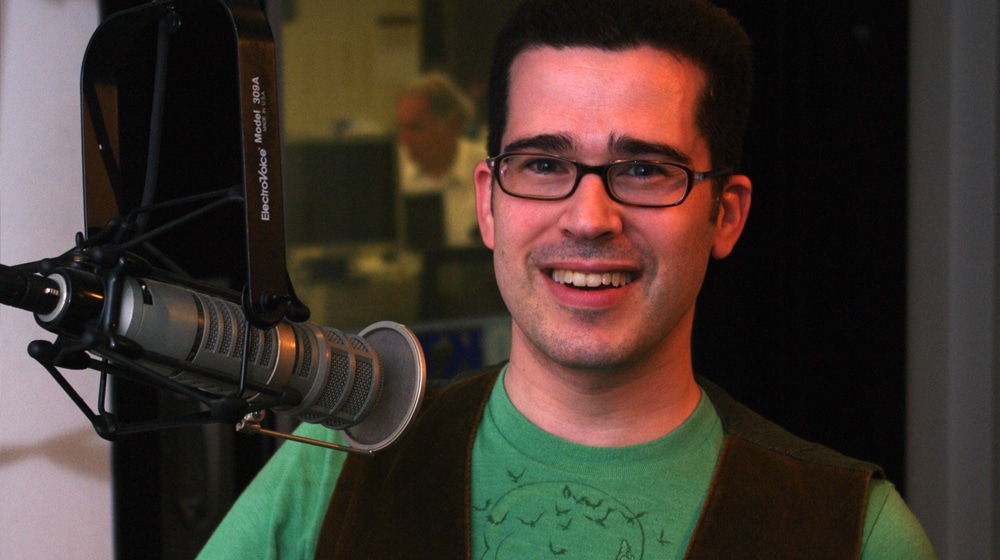The Ultimate List of Tips from Experienced Blogging Experts

Blogging is a wide and varied industry with experts around the world, in every niche. There are hundreds of people you could easily call thought leaders and authorities and thousands more who could claim that title and not be challenged.
One great thing about blogging is that almost all bloggers are more than happy to share the secrets to their success. We want to see others succeed where we succeeded because we know the internet is an infinite space full of possibility, and as long as there are people to read content, there should be people creating that content.
Thus, one of the best ways to learn, to grow, and to succeed, is to heed the advice of those who came before. There is, to put it mildly, an absolute ocean of that advice out there. I've consolidated the best tips from the people I respect the most.
Are you ready? Here they are:
 30 Second Summary
30 Second Summary
Bloggers thrive by sharing knowledge widely and tapping other bloggers' success secrets. Understand your audience better than they understand themselves. Offer content freely to build loyalty. Start writing without worrying about perfection. Maintain a list of potential topics. Optimize for readers who skim. Test ideas on social media before posting. Ensure consistency in publishing, use compelling headlines, and focus on a great call to action. Prioritize creating original, actionable content. Never neglect your existing readers while chasing new ones.
Brian Clark

"Understand your audience better than they understand themselves."
Through deep use of research and analytics, as well as ground-level engagement with your audience, you can work to understand them from the inside out and build a deep working knowledge of their needs and desires.
Jeff Bullas
"Give content away."
You don't benefit as much as you might think by gating content behind a membership, a social locker, or a paywall. Giving away content, including your best tips, builds loyalty and admiration, and that's what grows your reputation in the industry and beyond.
Anum Hussain
"Just start writing and publishing"
Too many people get caught up in details like 100% perfect grammar, keyword density, optimized metadata, and publication schedules, and let it get in the way of actually writing and gaining experience.
Mike Moran
"Keep a list of topics and ideas."
As you write, as you go about your day, as you read other online content, you'll have ideas for blog posts. No matter how much you think you'll remember them tomorrow, you won't. Write them down.
Melanie Dodaro

"Longer posts generate nine times as many leads as shorter posts."
While the exact figures may vary, the average word count for blog posts has gone up and up over the last several years. Longer posts are engaging, assuming they're well-written and full of great content. People read long posts, so anyone telling you shorter is better is selling themselves short. Trust your reader to enjoy your content enough to read it.
Nate Kontny
"Focus on building a great call to action."
It's all well and good to say you want to build a mailing list or convert users into customers, but in order to do so, you need a great call to action. The call to action is how you get those people to convert, and without it, your blog loses most of its effectiveness.
Dave Kerpen
"No matter how great your content is, it won't matter unless you have an amazing headline."
On social media, in email digests, and in search results; often the only thing a reader has to go on when they choose whether or not to click your link is a headline. Make sure your headline is extremely compelling.
Neil Patel

"Consistency is one of the most important things that bloggers tend to forget."
It doesn't necessarily matter what the schedule is, whether it's three posts per day or three posts per month. The regularity is what's important. Take as long as you need to write high-quality posts, but publish those posts with regularity.
Joel Gascoigne
"Test your ideas before writing them."
By crafting a quote, question, or pitch in a sentence or two, you can test ideas out on Twitter or Facebook and gauge your audience's reaction by their engagement.
Dave Larson
"Get ideas from your audience."
Blog comments, social media replies, and open polls are all great ways to get content ideas the people reading your content actively want to see.
Rand Fishkin

"Plan to invest in blogging for a long time before you see a return."
Blogging is an industry packed full of content creators, and it takes a while for your efforts to make you stand out. Go into it expecting to take years to grow. If it does, you're where you want to be, and if you grow faster, great job!
James Clear
"If you're blogging to create a business, a movement, or to support a cause, then you need to build an email list. It's not an option."
Blogging is all about capturing attention, but you need to do something with that attention. An email list is the best way to keep those people with interest in your content around and coming back.
Darren Rowse
"Love the readers you already have."
A lot of content marketing is focused on growing and bringing in new readers, but a lot of bloggers forget the readers they already have. Keeping them happy is just as, if not more important than getting more readers.
Gregory Ciotti
"Make sure each post has an original lesson or actionable item, making it 'citeable' on the web."
Links are the backbone of the internet, and of how your site ranks higher in Google. Making sure every post you write is packed full of great information ensures that every post is something someone would want to link to, and builds links better than any other kind of content.
Chris Pirillo

"Stay true to yourself and your voice."
ZZZIs your blog earning you business? If not, let's fix that.We create blog content that converts - not just for ourselves, but for our clients, too.
We pick blog topics like hedge funds pick stocks. Then, we create articles that are 10x better to earn the top spot.
Content marketing has two ingredients - content and marketing. We've earned our black belts in both.
If you run an internet-based business and are looking to scale, schedule a call to speak with our founder:
Time and again, you can see people online abandoning a successful site because the person or people they liked left it. People follow other people, not brand names. Build your own voice and stay true to yourself to keep those people around.
Sherry Lamoreaux
"Don't forget about images."
Great blog posts are not just text, they're multimedia experiences. Embedding images is the absolute least you can do; adding videos, parallax scrolling, and other advanced techniques help expand the sensory experience of the blog post.
Keep in mind that if you can't make the images or videos yourself, you can buy them. There are plenty of people willing to be graphic artists for hire, and videos can be commissioned from a variety of services. There's a lot of resources out there if you're able to take advantage of them.
Joel Comm
"Encourage feedback by asking questions."
Not only can asking questions boost your engagement, but it can also lead to discussions that lead to other ideas for future blog posts. The feedback loop you can get going is astonishing and valuable beyond mere audience engagement might seem.
David Meerman Scott
"Newsjacking is a great way to grow your business."
Newsjacking is the process of hijacking a newsworthy topic, writing content about it, and linking that content to your marketing in some way. Getting used to the flow of the process is a great way to capture time-sensitive traffic, and works as a great supplementary strategy.
Newsjacking has one major drawback; once the news is no longer news, your content is no longer relevant. That's why it only works on faster-moving blogs or interspersed with more evergreen content. You have to have something there to keep the traffic you get sticking around.
Liane Davey
"Make use of older content by adding a related post "further reading" section to the bottom of your posts."
Internal links are great for users, for Google, and for discovery. Using a related posts widget, though, ends up looking too much like shady ad links, so a lot of people have started ignoring them. Instead, adding pure text links in a "further reading" section works quite well.
Jeff Goins

"Write for scanners."
A scanner, in this case, is also known as a skimmer - someone that tries to digest an article and get to the good stuff as quickly as possible. The average blog reader doesn't so much read your entire post as they do scan it. They read headlines, subheadings, bolded sections, bullet lists, and try to find the specific short sections they want to see. Keep this in mind when you're formatting your posts, writing longer paragraphs, or getting to trailing in your thoughts.
Rich Brooks
"Rather than constantly creating something new, find older blog posts that can easily be updated."
Old content can still have a lot of value, even after the initial spikes of traffic die down. Refurbishing, re-sharing, and updating old content gives you a lower-effort way to fill holes in your editorial calendar and recycle old work.
Making the determination of which content can be improved and refreshed, which can be merged with other old content, and which should be set aside is a time-consuming technique, but don't worry; you're under no time constraints there either.
John Chow
"Write on a topic you're passionate about."
If you're not passionate about the topics you're covering, it's going to be increasingly more difficult to write about those topics as time goes on. The risk of burnout is very real, so sticking to topics you're actually interested in makes it feel a lot less like work.
Kulwant Nagi
"Become a master in one niche."
All too many bloggers get frustrated with the topic they choose and try to jump around. You never build authority or thought leadership that way. Investing more in a single niche allows you to build up authority and reputation, not to mention an audience.
Bill Gassett
"Build relationships with others in your industry."
Too many bloggers treat other bloggers as competitors, rather than compatriots. You can get a lot out of a partnership that you would lose if you're just mindlessly antagonistic with other bloggers. You might notice some of the best growth techniques include things like guest posting, blog commenting, and quote roundups.
It's rare these days, in our connected society, that a secret can stay a secret for long. It's better to work together with the community to create something truly special than it is to hoard your secrets like some kind of blogging dragon.
Joseph Gojo Cruz
"Actively participate in discussions where your audience is."
Part of knowing your audience is often simply being one of them. Find the communities they're a part of, whether they're Twitter hashtag discussions, Facebook groups, or web forums, and join and participate in those groups. Become one of them, so you can know how they think and how to target them with your content.
If you don't have much of an audience, well, start by joining communities related to the topics you're interested in writing about. You can learn about the audience that already exists for that topic, and work to make them your audience.
Jeremy Rivera
"Make sure that behind every blog post, there's a deeper motive."
The motive isn't nefarious; just make sure that every blog post you write has a goal. That goal might be to inform, or to teach, or to solicit information. It might also exist solely to refer people to a link at the end of the post. It doesn't necessarily matter what the goal is, so long as it has one.
You can couple this with the call to action advice above. Every blog post should have a goal, and that goal should be expressed with the call to action.
Robert Mening
"Avoid trying to write a hundred mediocre articles as quickly as you can."
Quantity isn't as important as quality. Your goal should always be to produce a high-quality piece of content that your followers actually want to read. Pumping out piles of low-quality content is just going to leave you with a blog full of posts with zero hits.
I've written about the dichotomy between quality and quantity before, but the short version is this: write your posts with quality first, keeping to a high standard, and publish as often as you can with that quality level. If quality suffers because of your schedule, dial it back.
Jamie Cattanach
"Write guest posts."
Guest posting is a great way to build relationships within your industry. You grow your own audience by expanding the number of people who see content with your name on it and getting exposure on websites that you don't own.
Guest blogging is one of my favorite techniques, though I don't do it as often as I should. The ability to reach out to people and build relationships is powerful, the exposure is great, and the citations can be extremely valuable.
Do you have your own blog, and do you have any of your own advice you'd like added to the post? Leave it in the comments below!



 30 Second Summary
30 Second Summary


September 14, 2020 at 1:22 pm
These are nice tips! Very helpful. Besides the tips listed above, do you have any tips or suggestions on how to drive more traffic in the blog?
September 15, 2020 at 1:03 am
Be very picky on the topics you write about. You want to be tactical about it; draw up 10 different blog post ideas, research each one, see who wrote about it, how big their site is, how good the article is, and if you don't find any gaps, crumple it up and start over. Most people just take a "Fire ready aim" approach and write about whatever comes to their mind without first digging into it, which is a giant mistake. Start with that, then work on making your content a full head and shoulders above everyone else.
It isn't easy, but it works.
October 05, 2020 at 8:22 pm
The "Write a topic that you're passionate about" part spoke to me, but for the wrong reason. My industry is kind of boring and writing about it is like pulling teeth. Maybe it will get easier, or maybe I should just hire someone to write for me. It's definitely hard though when the articles are so boring to write and read. My industry is about certification and compliance, it doesn't get more boring than that. Lots of citations and research...
October 05, 2020 at 8:57 pm
Hey Paul! Well in that case, maybe just write fewer articles and break them up over time. How long does it take you to write an article? I think if you were to split it up over the course of a week or two and just publish a bi-weekly post it would be much easier for you. You might be getting burned out from writing super complicated content too often. In your case I would find a good posting frequency that works for you and chip away at each article a bit.
Researching articles on compliance and ensuring you're posting truthful and correct information is super time-consuming so I can see how you'd get burned out, it's totally normal. That's usually the remedy (adjusting your frequency).
It's pretty hard to have fun writing about topics like that, but they are important topics to cover nevertheless, and you're certainly educating the public.
Keep at it!
June 23, 2021 at 10:03 am
Jeff Bullas is the man! Great idea, I see it as giving away a free taste of your product, once they have a taste of it and people likes it they will be the one to tell others to subscribe and follow your blog!
June 23, 2021 at 3:45 pm
Thanks Dino!
July 24, 2021 at 12:30 am
Totally agree with Joseph Gojo Cruz. You should be visible where your target audience is. Help and give ideas, make yourself known!
July 24, 2021 at 4:16 pm
Hey Jay, thanks for the comment!
January 07, 2022 at 4:01 am
This article is full of golden nuggets. I've been struggling in writing contents but having read Rich Brooks' tip to look for older blogs that can be easily updated instead of consistently creating new ones is a thing that I haven't done so far.
January 12, 2022 at 10:31 pm
Thanks Andrew!
That's the nicest compliment I've received, and it's what I try to go for in these posts. Love to hear it.
Updating posts almost always improves performance. It's almost as if search engines don't quite give new posts the light of day until you update it at least once.
It sounds crazy, but it's real. Definitely keep your content updated and relevant!
February 25, 2022 at 3:05 am
“Consistency is one of the most important things that bloggers tend to forget.” Neil Patel nailed it with that one. I think consistency is something we should strive for every time not just in blogging but also in our everyday lives.
March 04, 2022 at 5:47 pm
Thanks Francis 🙂